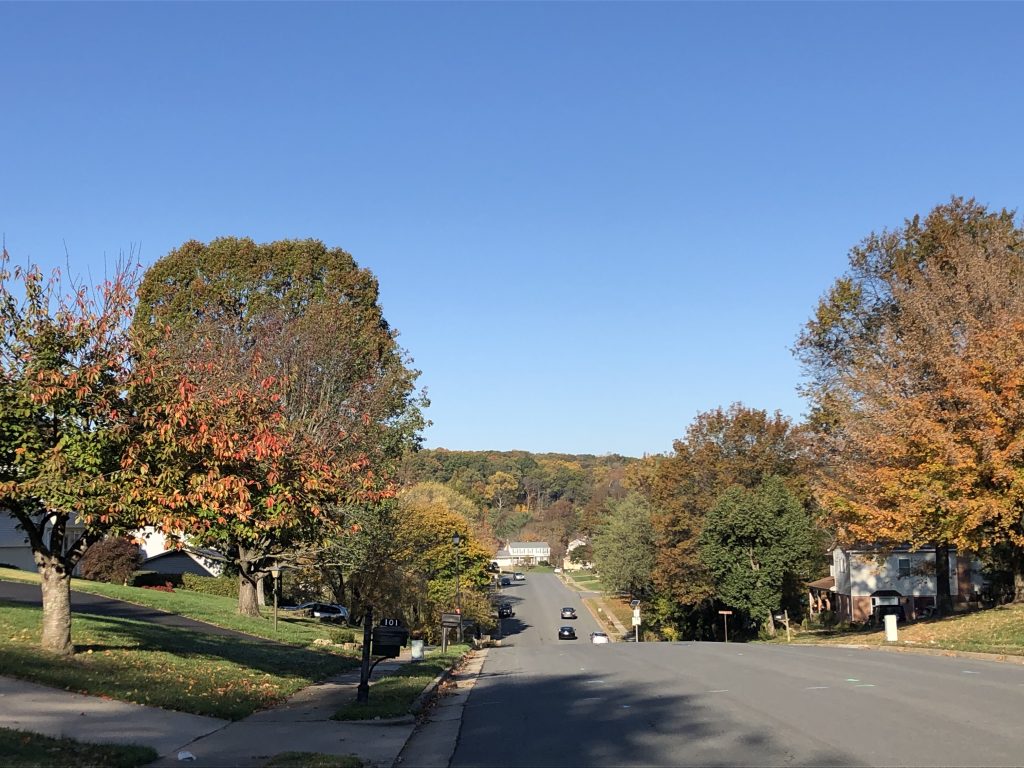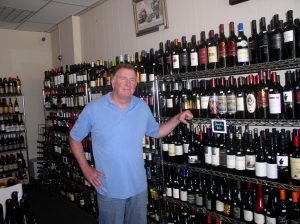Will Toledo on Car Seat Headrest’s new album, recovering from long COVID, the state of Bandcamp, and what’s next for one of Indie Rock’s greatest bands
–Michael Tedder on Stereogum, December 4, 2023
Words, music, images and more from Jim Barnes
Will Toledo on Car Seat Headrest’s new album, recovering from long COVID, the state of Bandcamp, and what’s next for one of Indie Rock’s greatest bands
–Michael Tedder on Stereogum, December 4, 2023
Virginia Davies knew she and her husband, George, would have to compromise when they were house-hunting in 2014. She liked country living, and George preferred the city.
They settled on a house in Leesburg Country Club, a residential community with tall trees, wide streets and cul de sacs on the south side of Leesburg, Va.
—The Washington Post, Dec. 4, 2019

Leesburg residents who live near Westpark Golf Course are pushing back against a developer’s plans to acquire the property and build homes on it.
Town officials announced late last year that the course is under contract to CalAtlantic, a land- development company that plans to build 27 homes there and donate most of the remaining property to the town. Since the sale’s announcement, scores of residents have shown up at town council meetings and other community gatherings to object to the plan.
The Washington Post, Jan. 5, 2018
The Leesburg Town Council is considering acquiring the Westpark Golf Course, which has been a mainstay of the rapidly growing town for almost a half-century.
A standing-room-only crowd packed the council chambers as residents who live near the golf course implored the council to acquire it and keep it as open space. More than 100 people filled the room after learning that the property is for sale, and that it is zoned for commercial and residential development.
The Washington Post, Nov. 4, 2017
Turning to art, Gertrude Evans continues her vigil for civil rights
Loudouner, Fall 2017
The Loudoun Board of Supervisors will not seek authority from the Virginia General Assembly in January to move or remove a statue of a Confederate soldier that stands in front of the county courthouse.
On Wednesday, the supervisors narrowly defeated a motion by Board Chair Phyllis J. Randall (D-At Large) to request that the General Assembly amend state law to give the county discretion over the bronze statue, which was erected in 1908. Under state law, Virginia localities are not permitted to “disturb or interfere with” war memorials.
The Washington Post, Sept. 22, 2017
Two sinkholes that formed during the construction of a parking garage for the Loudoun County courts complex on the Pennington lot in downtown Leesburg have set the project back by about five months and raised the cost by more than $5 million.
The Washington Post, Sept. 10, 2017
About 100 people gathered in Leesburg on Monday evening at the first of three public input sessions to discuss potential solutions to alleviate traffic congestion on Route 15 north of town.
Loudoun County officials scheduled the meetings to gauge public reaction to a consultant’s recommendations for reducing traffic backups. Participants met in small groups to discuss possible solutions and to offer their priorities for the highway corridor between Leesburg and the Potomac River bridge at Point of Rocks.
The Washington Post, July 1, 2017

Although Leesburg Vintner was closed Monday, owner Mike Carroll was working in his shop while a ribbon-cutting for Delirium Cafe was taking place across the street.
“I think it’s going to be a game-changer,” Carroll said as he peered through the blinds at the growing crowd outside the cafe, a franchisee of a popular Belgian beer company. “It’s created a buzz unlike anything I’ve seen since I’ve been here.”
Carroll has been selling bottled wines at the northwest corner of King and Loudoun streets in Leesburg for almost three decades. During that time, he has withstood increasing competition from big box stores and local wineries.
The Washington Post, May 21, 2017
In 1817, Gen. George Rust bought a 485-acre tract along the Potomac River north of Leesburg and began building a Federal-style home there. The rock outcrops that studded the land inspired the property’s name: Rockland.
Two centuries and five generations later, Rust’s descendants still own and occupy Rockland. But maintaining old homes is costly, and the current occupants are searching for new ways to generate revenue from the property so they can continue to keep it in the family.
Rockland is one of six picturesque Leesburg-area properties that will be open to visitors Sunday and Monday during Virginia’s Historic Garden Week. The Garden Club of Virginia uses proceeds from the event, now in its 84th year, to restore and preserve historic public gardens across the commonwealth.
The Washington Post, April 23, 2017